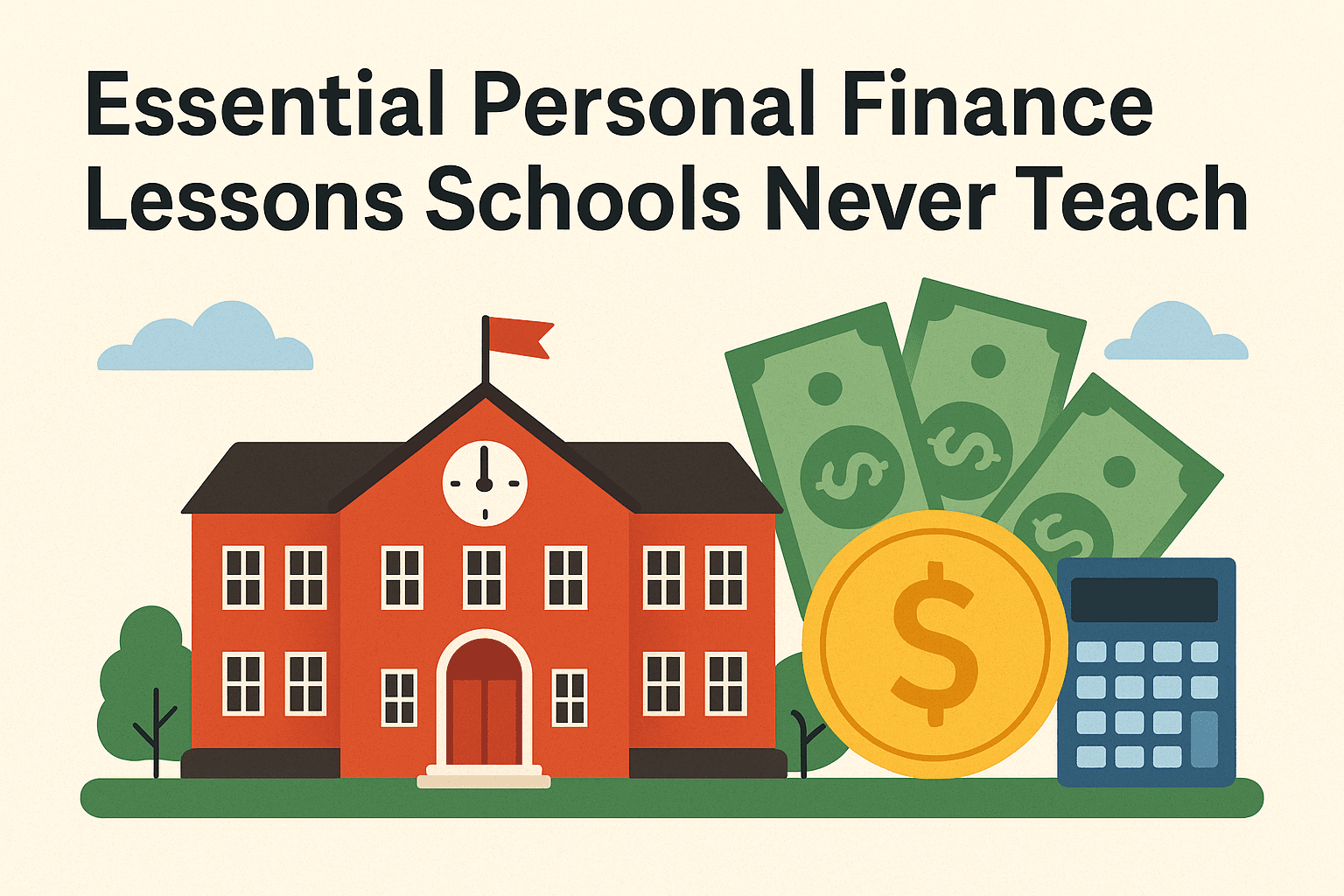Schools focus on subjects like math, science, geography, history and literature, but important financial topics like budgeting, taxes, investment, savings are often not included. This gap in financial education in schools leaves many adults struggling to manage money effectively.
In this blog you will explore why do schools not teach taxes, why finance for schools is often ignored, what you should learn in finance from an early age, and many more
Why isn’t financial literacy taught in school?
Despite there being growing awareness of financial literacy still, financial literacy in school is not a subject yet. Here is why:
1. Outdated curriculum: The subjects in schools are often more towards traditional ones rather than practical ones and thus there is very little room for finance in schools.
2. Lack of Trained teachers: Many teachers have themselves never received financial education and thus it happens that there is lack of financial education for students in schools.
3. Assumption: Schools often assume that parents will teach their children about finance but it often happens that students don’t get financial education from home at any early stage.
4. Budget constraints: Adding new courses or programs in the curriculum requires funding and thus makes finance in education a low priority in underfunded districts.
Check this out ‘Why is financial Literacy not Taught in School’
The Consequences of Ignoring Financial Literacy
Failing to include finance and money in education and teach about them can lead to long-term effects. Here is what can happen:
1. Rising Debt: Without any education on finance, risk and debt management, students often fall into credit card and loan debt.
2. Limited savings: Since there is no awareness about financial literacy at an early age, people often start saving and investing late.
3. Poor money habits: Lack of financial education can lead to poor spending habits.
4. Low confidence in Financial Decisions: Individuals can often feel overwhelmed about their financial decision and might get confused about whether they made the right decision or not.
Essential Personal Finance Lessons that Schools never teach.
1. Budgeting Basics:
Budgeting is very crucial in finance where you can learn about how much you earn or spend and how you can control it by creating a budget. You can start learning this skill from an early age. Follow the 50/30/20 rule where 50% is for income, 30% for expenses and 20% for savings.
2. Understanding Taxes:
One of the major questions asked by adults is ‘why don’t schools teach taxes?’. Taxes are also something which everyone should know about. You should start learning about income tax brackets, payroll taxes, filing requirements and deadlines, tax deductions and credits.
3. Credit Scores and Reports:
Credit score is something which is required to secure loans and buy homes but schools never teach how to maintain a good credit score. For a good credit score, you can pay your bills on time, keep credit card balances low and check your credit report regularly.
4. Saving and Investing:
Schools often don’t teach about essential skills like savings and investment. You should start saving and investing early. You can build an emergency fund, Open a retirement account, learn about low-cost index funds and ETFs.
Debt can often feel overwhelming when you don;t have knowledge about it from an early age. Hence, it is important to have knowledge about interest rates and repayment strategies.
6. Insurance and Risk Management:
Schools rarely teach students about insurance policies and risk management. But, it is very important to know what are the different types of insurances like health insurance, life insurance, etc, to protect yourself from unexpected costs.
7. Financial Mindset and Psychology:
Having a Financial Mindset is a must. You must know what, how and where to spend to avoid wastage. Yet, schools often don’t teach about the psychology behind managing money effectively. But, you must build good habits and maintain discipline when it comes to finance.
Why Does Financial Education Matters?
Financial literacy affects everyone in every area of their life. Here is why it matters:
1. It reduces debt and helps you make smarter choices.
2. It encourages savings leading to financial security.
3. Early investing builds long term wealth.
4. Financial Literacy prepares us for emergencies.
How To Build Financial Knowledge on Your Own?
If schools aren’t teaching about finance then you should learn it on your own and here is how you can do it:
1. You can read finance books like ‘Rich Dad Poor Dad’ or ‘The Total Money Makeover’ where complex concepts are simplified.
2. You should use Finance apps like Mint, YNAB (You Need A Budget), and Personal Capital which can make budgeting and investment tracking easier for you.
3. Start watching educational content like finance podcasts, YouTube channels, or even free courses on platforms like Coursera.
4. You can start small by investing small amounts or saving small amounts.
5. Ask Questions to family members, financial advisors or mentors regarding financial literacy to clear your doubts.
FAQ’s
1. Why don’t schools teach taxes?
Ans: They consider tax laws to be complex and subject to changes. But if they teach the basics then it would be beneficial for students.
2. Should Financial Literacy be made mandatory in schools?
Ans: Yes. Many experts believe that if children are taught about financial literacy from an early age then they can have a more secured financial future.
3. How can I learn about Finance without formal classes?
Ans: You can read finance books, watch finance content, go through online resources.
4. How can parents teach finance to their kids?
Ans: They can teach about finance by teaching their kids to save for big purchases, including children in family budgeting discussions, etc.

